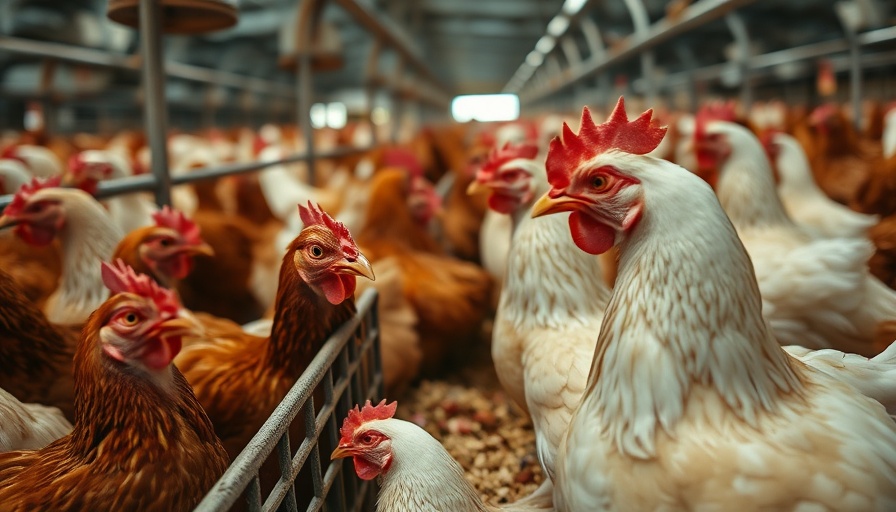
Rising Concern: Bird Flu Cases in Philadelphia
Recent reports confirm another instance of bird flu, officially known as highly pathogenic avian influenza (HPAI), detected in Philadelphia. This marks the third confirmed case this year, with health officials advising that while the situation warrants attention, the public's risk remains low. The latest strain was identified at a live poultry market, which has since been temporarily closed in efforts to mitigate any potential spread.
The Current Landscape of Bird Flu in the U.S.
HPAI variants have been circulating across the country, with the USDA noting detections in over 1,600 birds nationwide. In Pennsylvania specifically, the initial case was found in an ill snow goose, with the subsequent confirmations originating from local markets. Although there have been approximately 70 reported human cases nationwide this year, none have emerged from Pennsylvania, New Jersey, or Delaware, further suggesting that health risks are largely contained to those with direct exposure to infected birds.
Understanding the Transmission and Safety Measures
In light of these new findings, Dr. Aliza Simeone from Penn Vet outlined how bird flu is primarily transmitted through direct contact with infected animals. The overall risk from dead birds is significantly diminished. Important guidance for the community includes rigorous handwashing, the proper cooking of poultry and beef, and avoiding any cross-contamination when preparing meals.
What to Consider: Impact on Live Markets
Live bird markets have long been a part of Philadelphia's cultural fabric, offering residents a way to select specific birds for culinary purposes. However, the ongoing threat of bird flu raises critical questions about their future and sanitary conditions. Activists are pushing for enhanced transparency in meat production and animal treatment, promoting a shift away from practices that could endanger public health.
Possible Future Trends and Solutions
With increasing outbreaks, experts argue that vaccination could be a viable solution to control the spread of HPAI without resorting to mass slaughter, particularly as egg prices continue to escalate. This is a shift that could stabilize markets while addressing both public health concerns and animal welfare.
Takeaways for Residents
As the situation develops, it is crucial for Philadelphia residents to remain informed and vigilant. Regularly updating oneself on health department announcements while maintaining proper food safety practices can significantly reduce personal risk.
In sum, while the bird flu situation in Philadelphia may seem alarming, understanding the facts and following health guidelines can help minimize risk and ensure community safety.
 Add Row
Add Row  Add
Add 




Write A Comment